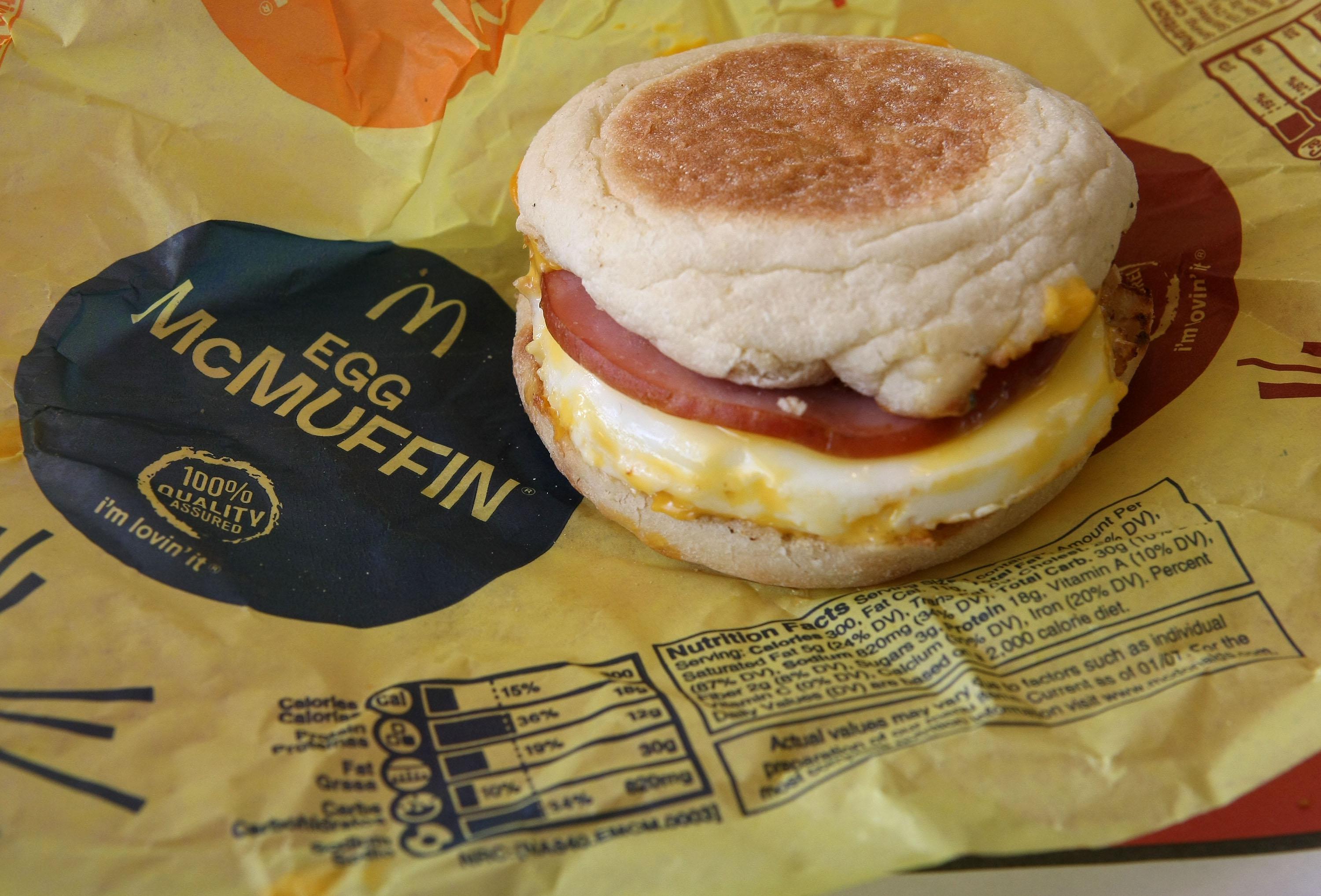First Dunkin’ Donuts made a play for upscale morning customers with its new eggs benedict sandwich. Then Taco Bell pulled out an entirely new menu and paid dozens of people named Ronald McDonald to endorse it on film. The McDonald’s corporation struck back quickly, announcing last week that it would give out free coffee from March 31 to April 13.
Yes, the fast-food breakfast wars are on—they’re being waged across the industry with weapons as varied as caffeine, syrup, and hollandaise sauce. For one reason or another, today’s titans of quick-and-cheap eats are obsessed with your morning meal.
To put the current red-hot competition for breakfast into context, it’s important to understand that McDonald’s has historically dominated this dining segment. In 2012, breakfast made up $10 billion in restaurant sales for the Golden Arches in the U.S., according to data from food research and consulting firm Technomic. That figure alone accounted for nearly one-third of the $31.7 billion in breakfast sales that all fast-food restaurants did nationwide that year.
McDonald’s, for its part, recognizes that it has long held the lion’s share in serving up breakfast. In the Q4 2013 earnings call this January, McDonald’s president and CEO Don Thompson spoke about the “consistent focus on core equity like breakfast, where a unique competitive advantage exists for McDonald’s.” The company would continue to milk that advantage, he explained, by “creating more of a coffee culture through high-quality McCafé products that pair very well with delicious foods.”
The sudden entry of Taco Bell, Dunkin’ Donuts, and a number of other fast-food chains into the breakfast sphere has put McDonald’s on the defensive. “This is going to be a very competitive marketplace,” says Darren Tristano, executive vice president at Technomic. “The last time we saw this competition was when Wendy’s came out with a breakfast offering and I think that really woke McDonald’s up.”
One reason that breakfast has drawn the attention of chains in recent months is that its sales figures—unlike those in much of the fast-food industry—are still growing. From 2007 to 2012, breakfast sales in the U.S. rose by an average of 4.8 percent a year, while other restaurant sales remained essentially flat, Technomic data shows. Breakfast is also historically underutilized, according to the National Restaurant Association, meaning there’s a bigger potential market left to tap.
“The restaurant industry certainly hasn’t grown that much, and consider that many of those years were recessionary,” explains Mary Chapman, director of product innovation at Technomic. “So chains see that business and that McDonald’s is really successful at it and say, ‘We can get a piece of that.’”
Then again, no other major fast-food brand has succeeded yet in toppling the McDonald’s breakfast crown. And at the heart of the issue might be a branding problem. Starbucks, for example, offers bagels, breads, and muffins, and has flirted with some hot breakfast items but is still thought of primarily as a coffee shop. Wendy’s has stepped in and out of breakfast for years without gaining the national traction it has as a burger, fries, and chicken nuggets server.
Even Taco Bell’s new stab at the morning menu—complete with its pièce de résistance, the syrup-drenched and meat-filled waffle taco—feels somewhat troubled in the branding respect. After all, how many people will associate breakfast with a restaurant named Taco Bell? Items like the A.M. grilled taco and the sausage flatbread melt don’t say breakfast the same way the classic Egg McMuffin does.
The truth of the matter is that other fast-food companies are still small fish compared with McDonald’s. The $10 billion McDonald’s did in U.S. breakfast sales alone in 2012 dwarfed the $7.6 billion that Taco Bell brought in that year from all-day restaurant sales, according to Technomic.
Still, new competitors will keep looking for their slice of the morning market, and McDonald’s isn’t going anywhere without a fight. The burger giant’s ongoing free coffee promotion is strategically designed to draw caffeine-craving consumers into McDonald’s restaurants and drive-throughs for the next week and a half—just long enough to make the stop an ingrained part of the daily commute.
“Right now, we know that coffee drives a very successful breakfast program,” Tristano says. “I think you’re going to see some coffee wars going on in the short term, and that’s just a defensive play by those who have space to protect it.”
